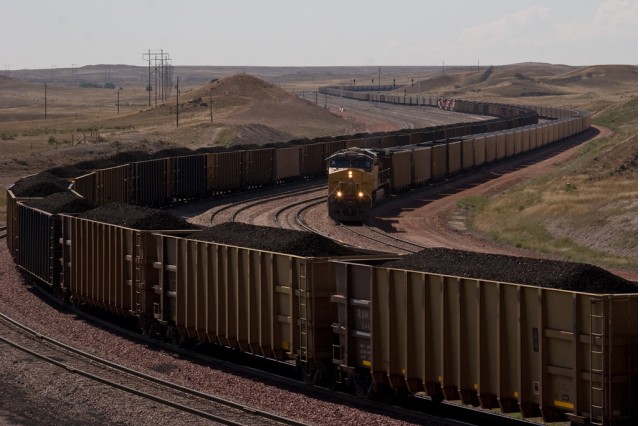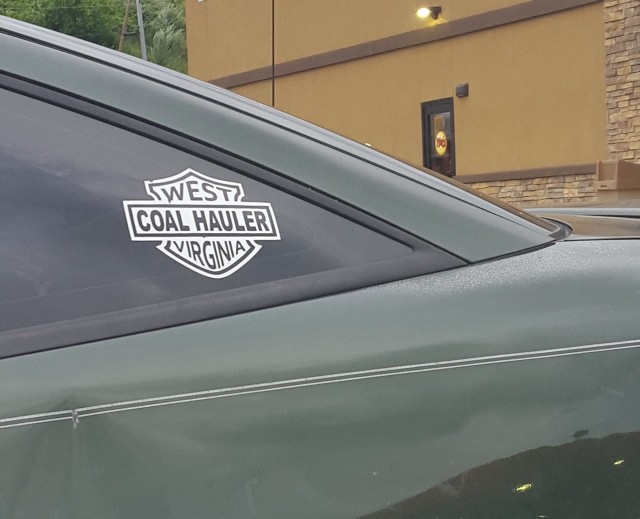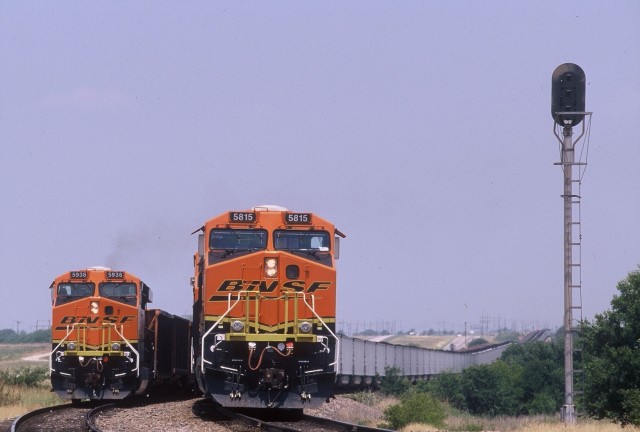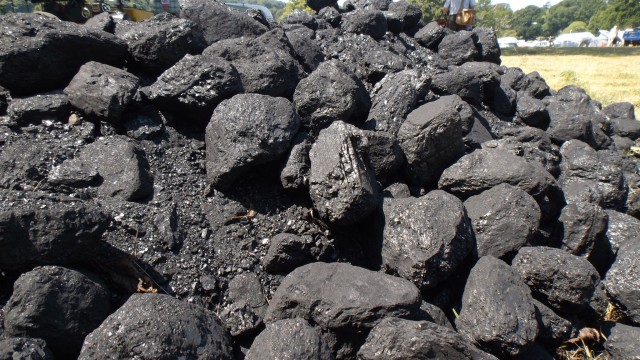 By John Voelcker
By John Voelcker
 Coal trains by Flickr user Kimon Berlin (Used under CC License)
Coal trains by Flickr user Kimon Berlin (Used under CC License)
The industrial revolution that began around 1750 was powered in large part by coal, and the carbon-rich fuel had 200 good years after that.
By the middle of the last century, however, serious studies had begun of its deleterious effects on human health—and that was before the climate-change impact of human emissions of carbon dioxide became known.
Transportation will slowly electrify over the coming decades, while coal’s share of electric power generation will wane worldwide.
DON’T MISS: Coal-country voters laugh at politicians who deny climate change
That’s the conclusion of numerous studies and analyses in the automotive, energy, and utility industries.
Now that conclusion has been underscored by the CEO of a company that has profited greatly from coal: the railroad CSX, an amalgamation of lines that includes one founded to haul bituminous coal from the seams of Appalachia.
“Coal has no future,” said Hunter Harrison, the chief executive of CSX, in a presentation to industry analysts last week.
 West Virginia Coal Hauler window sticker
West Virginia Coal Hauler window sticker
And the CEO went further, according to an account in the British Financial Times (subscription required).
“Fossil fuels are dead,” he elaborated, following his statement that CSX would buy no more coal-hauling locomotives or other equipment.
The death sentence, he added, is “a long-term view. It’s not going to happen overnight. It’s not going to be in two or three years.”
READ THIS: The day without coal: Britain’s first one since 1882
But in Harrison’s view, coal is “going away” and will represent a declining portion of the railroad’s business into the future.
The reason is simple, and it has relatively little to do with environmental issues or carbon emissions.
Instead, coal is simply too expensive against increasingly cheaper domestic natural gas produced through new technologies like hydrofracturing, known as “fracking.”
![Coal's share of U.S. electricity generation, 1949-2015 [U.S. Energy Information Administration data] Coal's share of U.S. electricity generation, 1949-2015 [U.S. Energy Information Administration data]](http://images.hgmsites.net/med/coals-share-of-u-s-electricity-generation-1949-2015-u-s-energy-information-administration-data_100585464_m.jpg)


Regardless of pledges by the Trump White House to “bring back coal” and lavish use of the phrase “clean, beautiful coal,” most analysts say coal will at best slightly delay its departure from the scene.
Another railroad chief, CEO Lance Fritz of Union Pacific, said that at best the Trump plans might “take away a headwind” but wouldn’t significantly revive coal.
The proportion of coal used to generate electricity in the U.S. has fallen sharply over the past few years, and the falling cost of utility-scale renewable energy now approaches that of even the most efficient gas-fired generation plants.
CHECK OUT: Exxon says coal will endure; other analyses beg to differ
The Financial Times article ends in a paragraph that conveys the finality of CEO Harrison’s decision.
“Mr Harrison said he was not going to buy locomotives or double-track CSX’s routes to accommodate coal. ‘Coal is not a long-term issue,’ he said.”Φ
John Voelcker is the Editor of Green Car Reports, run by Internet Brands Automotive Group. He reports for and edits the site, and provides news coverage and new-car reviews to the sister sites The Car Connection and Motor Authority. John has covered advanced auto technologies and energy policy for numerous print, online, and radio outlets, including Wired, Popular Science, Tech Review, IEEE Spectrum, and HybridCars.com. Find out more about John here. This article first appeared at Green Car Reports on July 31.
